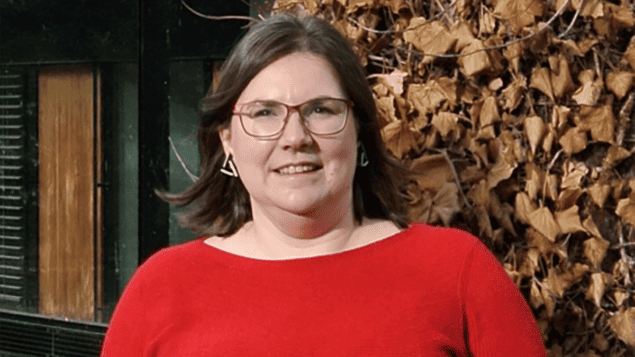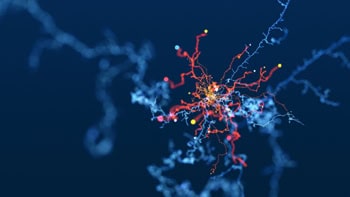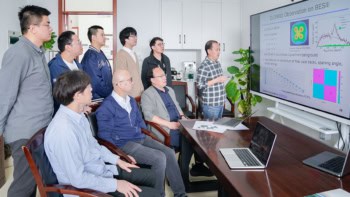Anne Pawsey is secretary general of the European Physical Society (EPS) in Mulhouse, France. After a PhD in soft-condensed-matter physics at the University of Edinburgh in the UK, she was a researcher on industry-linked projects and graduate school co-ordinator of the Scottish Universities Physics Alliance. She joined EPS in 2022 after three years at the University of Göttingen in Germany as teaching and e-learning coordinator of the Max Planck School Matter to Life

What skills do you use every day in your job?
Communication skills in all their forms are vital, whether it’s giving a presentation, writing a news article, discussing matters with one of our boards, or working with the team at the secretariat of the European Physical Society (EPS) in Mulhouse.
I also use a lot of project-management skills. The EPS runs several international conferences, is part of European Union projects, and facilitates the work of our volunteer members to promote and support physics and physicists – so there are often a lot of plates to keep spinning at the same time.
I’m grateful for the broad knowledge of physics I acquired during my degree. My PhD was in soft-matter physics on the behaviour of colloids in liquid crystals, but I also occasionally find that specialist knowledge I picked up in areas of science beyond my thesis topic come in handy for understanding matters under discussion.
What do you like best and least about your job?
I really enjoy working with a huge community of physicists and getting to hear them talk with enthusiasm about their research. I particularly enjoy interacting with the EPS’s Young Minds Sections and hearing about the outreach and engagement activities that they organize with EPS support.
My job is also really varied, and no two days are the same. I might be travelling for an editorial meeting, working on administration in Mulhouse, or participating in a planning meeting for a conference – all in the same week. The downside is that I occasionally miss the focused quiet of a meticulous laboratory experiment and I rarely get the luxury of spending an uninterrupted block of time on something.
What do you know today, that you wish you knew when you were starting out in your career?
I wish I’d known how vital language skills would be. Of course, most science is formally communicated in English and as a native speaker I have an advantage. But everyday life around the world happens in each country’s native language. The EPS is based in Mulhouse, France, very close to the Swiss and German borders, so I use French every day and have to converse in German at least once a week. I’m really grateful for the Erasmus year I spent in Grenoble during my degree for giving me a decent proficiency in French and the confidence to speak a foreign language.



